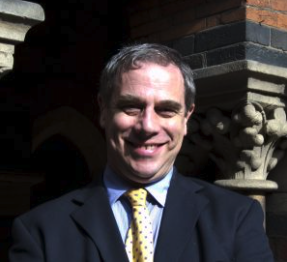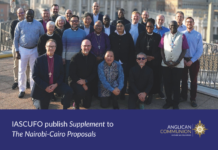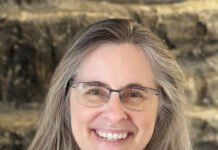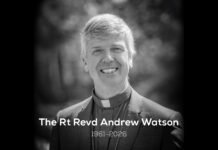Friday, 23 June 2023, London, UK: Leading Christian ethicist, Revd Dr Andrew Goddard, has called on the Church of England’s archbishops and House of Bishops to follow the best and only legitimate process by which they can bring the Prayers of Love and Faith to General Synod.
The Revd Dr Andrew Goddard, Tutor in Christian Ethics at Ridley Hall, Cambridge, sets out what he believes is the only appropriate legal route for the archbishops and House of Bishops to pursue as they seek to progress the Prayers of Love and Faith proposals. He argues that, as this is clearly a highly contentious issue, following canon B2, which requires Synod’s scrutiny and enhanced majorities, is the only defendable option.
Canon B2, he says, is the only appropriate route given the level of changes the prayers represent and would:
- seek as wide a consensus as possible for any development;
- keep worship faithful to speaking the truth of God and to God;
- enable public discernment on doctrinally disputed matters;
- secure widely-recognised doctrinal consistency and/or carefully considered developments;
- involve laity and clergy as well as bishops and archbishops;
- foster trust in the church’s processes and leadership
- limits threats to unity.
In a paper published today, exploring the various process options the Church of England could pursue with regards to the Prayers of Love and Faith, Goddard has expressed concerns about routes other than B2. These include the current proposed path of commendation by the bishops and authorisation by routes other than General Synod, including by only the two Archbishops, which the update to General Synod highlights the bishops “are particularly weighing up”. All alternative routes to B2, he argues, are only properly used for non-controversial matters and some raise serious questions around the potential abuse of power.
Summarising his main concerns, Goddard said: “The way in which these prayers are introduced into the church will say a lot about the church we want to be. Are we committed to respecting good, long-established and inclusive processes for approving liturgy and deciding contentious matters in Synod? Are we embodying the Pastoral Principles such as ‘paying attention to power’ and enabling people to speak rather than silencing them? Are we providing the best legal protection for parish clergy? If we are, then the only defendable route has to be canon B2.”
The Revd Canon John Dunnett, National Director, Church of England Evangelical Council (CEEC), commented on Goddard’s findings: “This detailed analysis from Revd Dr Goddard clearly exposes the flaws and weaknesses in pursuing either B4 or B5. People across the dioceses are saying to CEEC that they feel the bishops are not being honest with us. We call on our bishops to accept that this is a doctrinal matter and pursue B2.”
General Synod will be meeting in York from Friday 7 to Tuesday 11 July.
The full articles can be found at here.
-ends-
Notes to editors
About the CEEC
CEEC was first created by John Stott to provide a “collective” evangelical voice within the Church of England, was registered as a UK charity in December 1969 and incorporated in September 2003.
CEEC exists to provide for the continuing need for an overarching group to which evangelical organisations, networks, institutions and churches can belong, based on common understanding of the Christian faith and its Anglican expression, and united by a common vision to promote and maintain orthodox evangelical theology, ethics and liturgy at the heart of the Church of England. DEF’s (Diocesan Evangelical Fellowships) are the de facto representative bodies of CEEC in each diocese.
CEEC aims to encourage evangelism, bible-based and Christ-centred formation of discipleship, evangelical leadership within the Church of England, and evangelical unity within and outside Anglicanism.
The membership of CEEC includes representation from Diocesan Evangelical Fellowships, Theological Colleges, evangelical networks including New Wine, Junia, CPAS, Church Society, CMS, Crosslinks, Fulcrum, and evangelical bishops.



